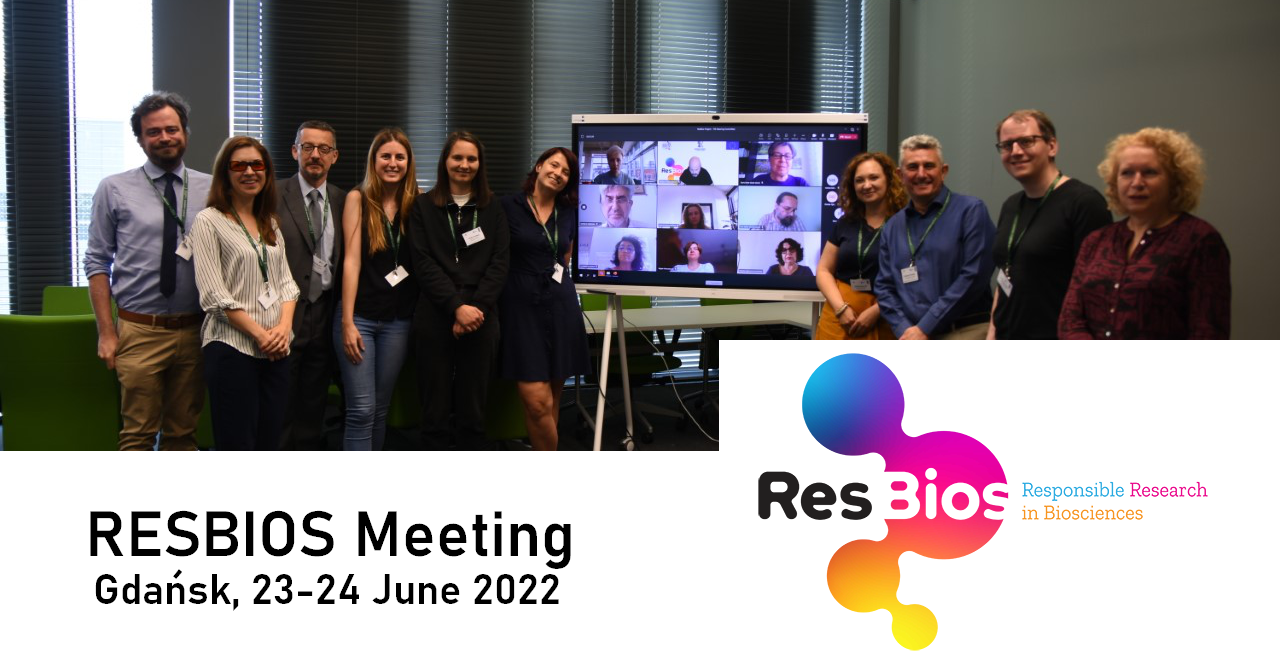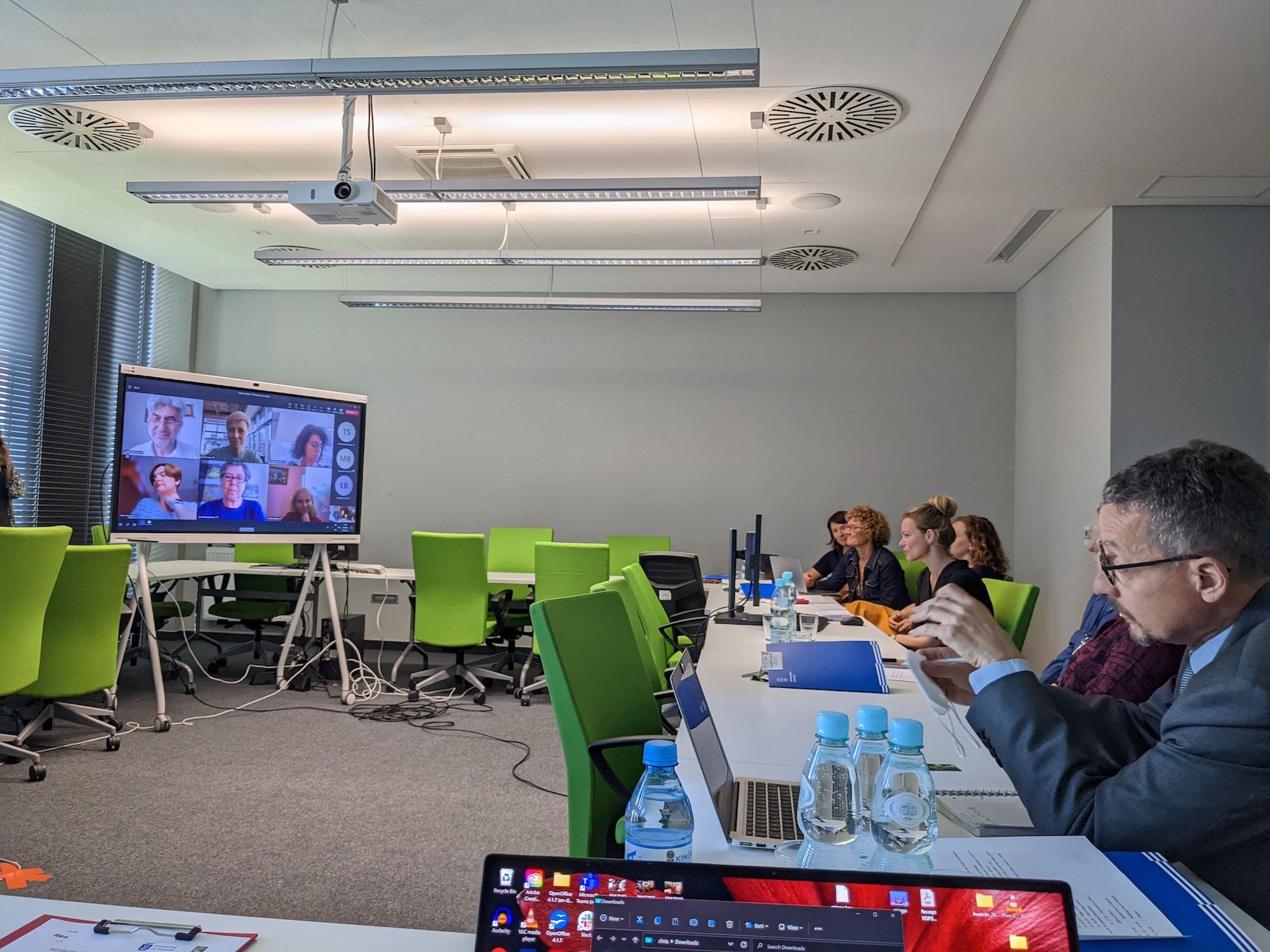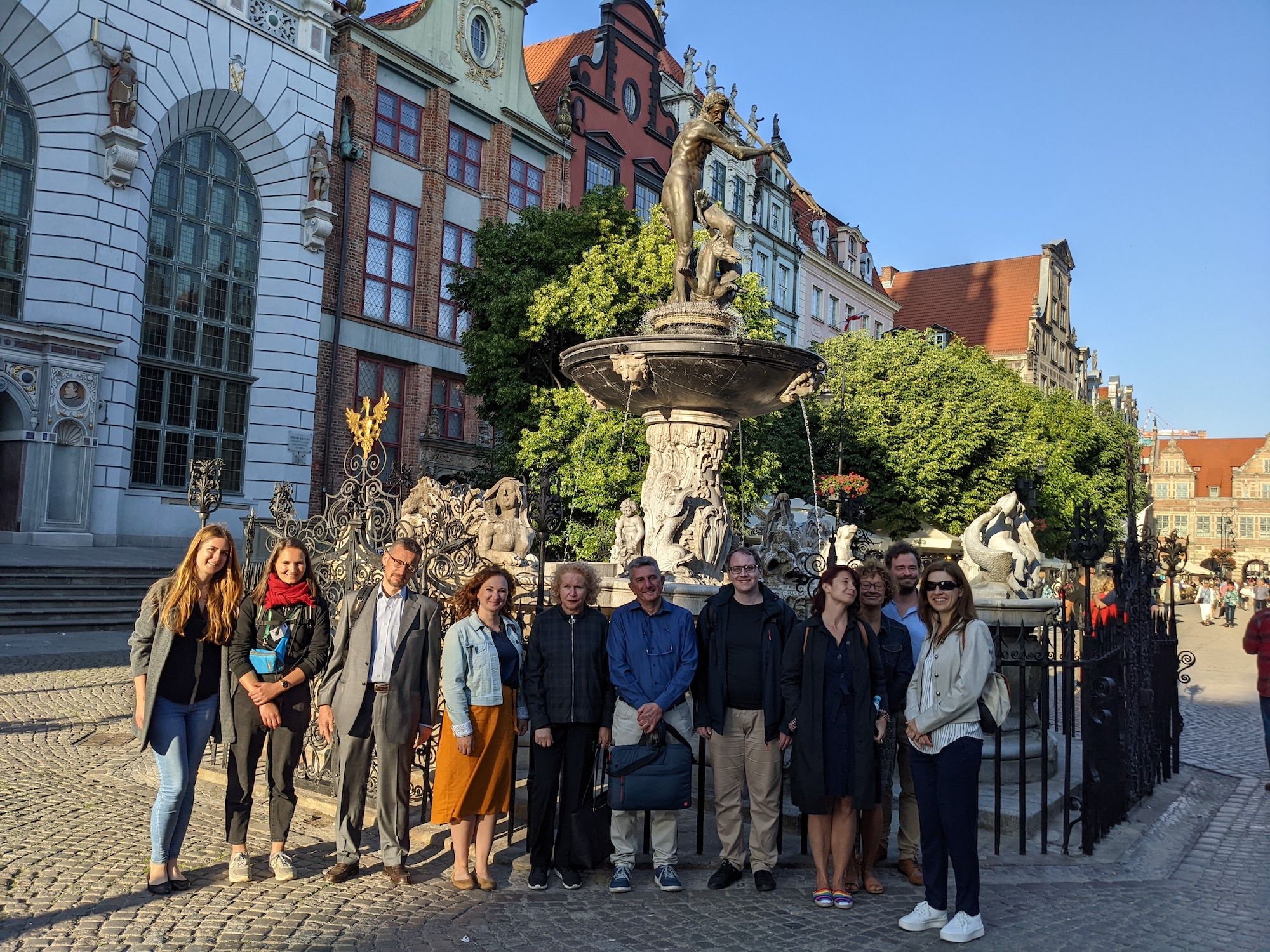Steering the Resbios Ship-from Gdańsk

On June 23rd, our friends at the University of Gdańsk were our fantastic hosts for our most recent ResBios Steering Committee meeting. Over these two days, representatives from each organisation of the ResBios consortium met either in person or online, and this was a great opportunity for all of the ResBios project partners to catch up and see what each of us have achieved over the past six months, as well as set a course for the final period of the project.
The meeting kicked off with a wonderful introduction to the University of Gdasnk from from dr hab. Ewelina Król prof. UG, Dean of the Intercollegiate Faculty of Biotechnology and Medical University of Gdańsk, and then the work begun.
We were first presented a project overview ResBios coordinator, Daniele Mezzana, from Università degli studi di Roma Tor Vergata (UNITOV), and how ResBios has transitioned from phase 3 focusing on the upscaling and dissemination of the key project goals, to phase 4- securing the long term legacy of ResBios.
Education | Presented by Nataliia Sybirna from the Ivan Franko National University of Lviv (INFUL)– In order to popularize innovations and responsible research in the biological sciences, the Department of Biochemistry of Ivan Franko National University of Lviv has launched a YouTube channel. This channel provides dissemination of scientific and educational information among students and graduate students of the university, school teachers who participate in events organized within the framework of RESBIOS, members of the Junior Academy of Sciences and other members of the society. Recently, videos about reference managers Zotero and Mendeley, educational videos for students about the biochemical properties of proteins, a recording of a meeting with a cosmetologist and a teacher at the beauty center “New You” were added to the platform. In addtion to this, INFUL has developed two workshops on pharmaceuticals and house chemicals in schools. INFUL recently organised a round table discussion on “Innovation and innovative technologies in the biological sciences as a basis for creating startups”, featuring a recent bioscience graduate, CEO and founder of InSpirito – Yevhen Filyak. |
Open Access and Ethics | Elena Buzan from the University of Primoska – Within these work packages and GA’s lots of work has been done across the consortium, including; the publication of a Code of Conduct and plagiarism policy at INFUL, a policy on Open Access and a plagerism system at University of Zagreb Faculty of Agriculture (UNIZG-FAZ), and a Open Access and Open Innovation policy at the Democritus University of Thrace, Department of Molecular Biology and Genetics (DUTH). In addition to the creation of these documents, these insitites have also been developing lectures, workshops and post graduate training courses on bioethics, integrity, and open access. |
Citizen Engagement and Gender equality | Janire Salazar from Institut de Ciències del Mar (CSIC). ResBios partners from CSIC and DUTH were very eager to talk about the success of recent public engagement activities, including the “Traveling in the magical world of Biology” and “Barceloneta Ocean” public events. In regards to the work that has been done towards gender equality, CSIS also shared the success of their annual awareness month, a series of events that focus on how research institute can promote inclusion and diversity, which included the ResBios webinar “Keeping Women in STEM Careers- Fixing the Leaky Pipe” . In addition CSIC and the University of Gdansk have published Gender Equality Plans as well as other supporting documents for their institutions.
|

As we reach the final few months of the project, it feels very bitter sweet– as a consortium we have come so far and learnt so much, but there is also still so much we could do. But through the difficulties and challenges of working throughout the past few year’s, we are so proud of the work we have achieved together. These opportunities to meet as a whole consortium, are such a great way for us to celebrate just how far the ResBios project has come, and how we can ensure the legacy of all the positive changes this project can be fostered and continue to grow. As well as the project laying important groundwork needed for other bioscience institutes that wish to follow our example.

